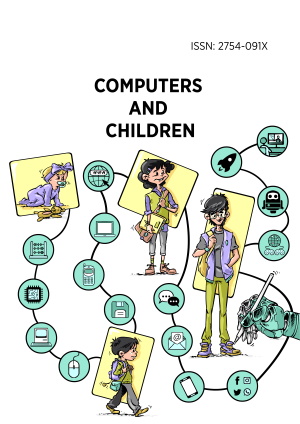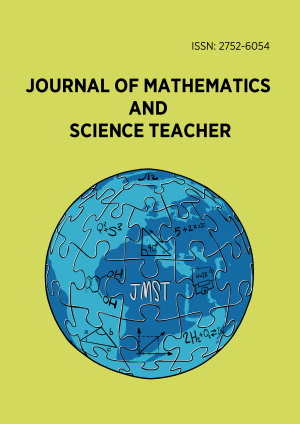Eurasia Journal of Mathematics, Science and Technology Education
Current Issue
Volume 22, Issue 1, January 2026
Research Article
Assessing in-service chemistry teachers’ environmental literacy on hydrosphere pollution
EURASIA J Math Sci Tech Ed, Volume 22, Issue 1, January 2026, Article No: em2754
https://doi.org/10.29333/ejmste/17558Research Article
Factors affecting the difficulty of comparison-type word problems in primary mathematics
EURASIA J Math Sci Tech Ed, Volume 22, Issue 1, January 2026, Article No: em2755
https://doi.org/10.29333/ejmste/17564Research Article
Perceptions and challenges in digital chemistry instruction: Student and instructor experiences with virtual laboratories
EURASIA J Math Sci Tech Ed, Volume 22, Issue 1, January 2026, Article No: em2756
https://doi.org/10.29333/ejmste/17565Research Article
Mathematics performance and the relations to the cognitive reflection, fluid intelligence, conditional reasoning, and logical-mathematical language in the university students
EURASIA J Math Sci Tech Ed, Volume 22, Issue 1, January 2026, Article No: em2757
https://doi.org/10.29333/ejmste/17631Research Article
Saudi Arabian secondary school students’ understanding of scientific models and modeling
EURASIA J Math Sci Tech Ed, Volume 22, Issue 1, January 2026, Article No: em2758
https://doi.org/10.29333/ejmste/17632Research Article
Recognition and conversion of electric field representations: The case of vector field plot
EURASIA J Math Sci Tech Ed, Volume 22, Issue 1, January 2026, Article No: em2759
https://doi.org/10.29333/ejmste/17633Research Article
Integrating affective computing and deep learning for learning path optimization in vocational education
EURASIA J Math Sci Tech Ed, Volume 22, Issue 1, January 2026, Article No: em2760
https://doi.org/10.29333/ejmste/17671Research Article
Video modelling intervention in teaching fraction problem-solving for students with autism spectrum disorder
EURASIA J Math Sci Tech Ed, Volume 22, Issue 1, January 2026, Article No: em2761
https://doi.org/10.29333/ejmste/17672Review Article
Digital technologies in environmental education: Implications for teacher education and professional development
EURASIA J Math Sci Tech Ed, Volume 22, Issue 1, January 2026, Article No: em2762
https://doi.org/10.29333/ejmste/17673Review Article
Multi-modal physics education for biology students: Mathematics as a structural model
EURASIA J Math Sci Tech Ed, Volume 22, Issue 1, January 2026, Article No: em2763
https://doi.org/10.29333/ejmste/17674Research Article
Design of a virtual environment with interactive simulations for the teaching of mechanic
EURASIA J Math Sci Tech Ed, Volume 22, Issue 1, January 2026, Article No: em2764
https://doi.org/10.29333/ejmste/17756Research Article
Enhancing mathematics education in Oman: Educator perspectives and policy implications
EURASIA J Math Sci Tech Ed, Volume 22, Issue 1, January 2026, Article No: em2765
https://doi.org/10.29333/ejmste/17757Research Article
Integrative STEM approach to enhance academic performance in physics among Spanish students
EURASIA J Math Sci Tech Ed, Volume 22, Issue 1, January 2026, Article No: em2766
https://doi.org/10.29333/ejmste/17758Research Article
Student readiness for TIMSS through the lens of mathematical proficiency: Evaluation of an instructional initiative for grades 5-8 in the UAE
EURASIA J Math Sci Tech Ed, Volume 22, Issue 1, January 2026, Article No: em2767
https://doi.org/10.29333/ejmste/17759Review Article
Digital applications in mathematics learning for secondary school students: A systematic literature review
EURASIA J Math Sci Tech Ed, Volume 22, Issue 1, January 2026, Article No: em2768
https://doi.org/10.29333/ejmste/17760



